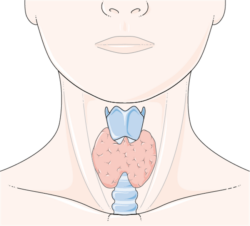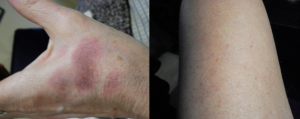I don’t know much about plumbing, I’ll admit it. I‘m not afraid to use a plunger, or take the lid off the toilet to jiggle the parts on the inside. I am also a master at pouring Drano in a clogged pipe. Usually this level of expertise is enough to solve the majority of my problems. However, when things get complicated, jiggling the handle just won’t do. Luckily there is a person with the technical know-how to fix most everything that my plunging skills won’t. Just one phone call away and I’ve got him. The plumber.
Plumbers can handle all sorts of issues. They arrive, do whatever magic it is that gets everything in running order again, charge a fee, and leave us happily using the facilities. But imagine this. When the plumber arrives, instead of fixing your shower issue, he (or she) takes a cursory glance. Maybe he quickly turns the faucet on while you try to explain the problem. He doesn’t really listen, but still pinpoints the issue right away. “Your problem is the showerhead. You need a new one.” Perhaps you argue that this may be true, but what about the drain? “Well, I only diagnose showerheads. You are going to need to call a drain guy to fix your drain.” Huh? Well, OK. At least go ahead and fix the showerhead. “Oh, I can’t fix that. You need the showerhead guy for that. I just diagnose showerheads. I don’t fix them.”
Ridiculous right? Of course it is. But this is essentially what happens when we venture into the medical world with any complaint more complicated than the sniffles. Take my experience. In the last 5 months, an adverse reaction to a fluoroquinolone antibiotic (Cipro) has caused my husband’s body to go haywire. Going to our family doctor my husband had a myriad of complaints (some that came right after the prescription, some that came later). These included tendon and body pain, nerve pain, tingling and buzzing nerves, insomnia, depression (can’t think why), chemical and food sensitivities, a persistent rash, and other issues which I am not at liberty to share publicly.
My husband’s doctor did what doctors are trained to do. He consulted the checklist.
Primary Physician Checklist:
- Throw more drugs at the problem (in this case NSAIDs for inflammation).
- Perform tests to eliminate “serious” issues (MS? Fibromyalgia? Arthritis? No, no, no. Fluoroquinolone/Cipro toxicity? Yes. This seems serious enough to us, despite our doctor never having heard of such a thing.)
- Refer to specialists.
Fluoroquinolone Side Effects Aren’t Impressed by Checklists
The Physician’s Checklist is a three pronged approach that got us exactly nowhere. Which is not at all surprising because the logic behind this all too common approach is deeply flawed. The implicit reasoning is that a patient can be divided into individual body parts and systems, each one with an associated specialist. For the body and tendon pain, a rheumatologist. For the nerve pain, tingling, and buzzing, a neurologist. For the rash, a dermatologist. For the foot pain, a podiatrist. For the crazy B6 and B12 blood test results, a nutritionist. For the depression, a therapist. Although we haven’t been to an endocrinologist, an allergist, or a gastroenterologist, I’m sure we could get an appointment quickly. Referring to specialists is something our primary care physician does very well. It’s the last thing on his checklist after all.
The problem that should be obvious here (besides our doctor’s total ignorance of side effects from fluoroquinolones) is that nowhere in this process has my husband been treated as more than the sum of his parts. None of these doctors talk to each other. (For good reason perhaps. Would another doctor have patience with a neurological diagnosis of “it’s probably static on the line” with a prescription for “you can try the meds I prescribe to my diabetic patients, or not”?) Why, for example, is my husband intolerant to foods, supplements, and medications that used to cause him no issue? Aren’t these symptoms possibly related, both to each other and to other symptoms? Also, why are the majority of his issues concentrated on the left side of his body? His rash is on his left leg. His foot pain is in his left foot. His nerve issues are most pronounced in his left leg and left temple. His left big toenail has a discoloration that is not present on the right toe… None of our doctors have found this at all remarkable or interesting. Perhaps we would do better if doctors divided themselves by body regions. We could go see the “leftologist” and have better luck.
This specialization is now the cornerstone of western medicinal practice. And under ideal conditions, it saves lives. For example, if you have a strange spot on your skin, where else would you want to go but to Stanford’s “Pigmented Lesion and Melanoma Clinic”? An entire clinic of the most well renowned doctors in the world, whose sole focus is diagnosing and treating spots like yours. Yes, that is truly great. However, doctors have become so very specific in their field of expertise, that they most often do not have the knowledge, time (or frankly the interest) to look outside of their own domain. (Looked at in a different way, they treat melanoma, not people.) Humans are intricate creatures. Our health is a complex and elaborate system that is not divisible into discreet elements. Sometimes a spot is skin cancer. Sometimes it’s a hormonal imbalance. Sometimes it’s a side effect of medication. When our health becomes complicated, our specialists are rarely equipped to look beyond the bits and pieces and treat an entire person.
Modern general practitioners have become, in many cases, little more than the gatekeepers to these special specialists. When health concerns becomes complex, there is another professional to direct the patient to. This creates a situation in which nobody is truly responsible for treating the whole patient. Had my husband taken the conflicting advice of every specialist he visited he would, with no diagnosis whatsoever, have treated irritated nerves with pain medication, aching tendons with pain medication, injured feet with pain medication, insomnia with sleeping pills, depression with anti-depressants, ulcer-like stomach pains (caused from accepting the pain meds early on) with proton-pump inhibitors. And the rash? The treatment recommendation for that was a fluoroquinolone antibiotic. Specifically, Cipro. The same fluoroquinolone drug that started this whole mess.
There Is No Such Thing as a Fluoroquinolone Toxicity Specialist
The one tangible outcome from visiting these various specialists is the gravity that it lends to my husband’s situation. The prevailing thought from people seems to be, “Well, it must be very serious if he has seen specialists!” Close on the heels of this thought is the question of whether we have yet seen the right specialist. We live in Silicon Valley so people’s inevitable question is, “Well, have you been to Stanford?” I guess Stanford is where people go when they are serious about getting well. (Not like us, we’re satisfied with misery?) This question is well meaning. But it clearly shows that people have an ingrained trust in the way our medical system runs (insurance issues not withstanding). If you have not been helped, it must be because you haven’t been to the right specialist yet. The specialist with the most education. The expert. Surely a Stanford neurologist can cure my husband’s nerves, a Stanford rheumatologist can soothe the body pain, a Stanford podiatrist can fix the feet, a Stanford dermatologist can cure the rash, and a Stanford therapist can make everything cheery again. It’s not the system that’s the problem. It’s the individuals within the system.
This isn’t logical and I no longer believe it. I don’t accept that our two options are that groups of specialists looking at small parts of the whole can fix each of those parts independent of one another, and if not, we’re hopeless. Surely our multitude of doctors can aspire to do better than this, but it seems not. Ultimately we were helped by one visit to a specialist. It was the nutritionist who finally was at all useful. She essentially said, “I don’t know how to help you. You need to see a naturopathic doctor, and research alternative medicine.” This is ultimately what we have decided to do. We will have to go outside the mainstream to find a health professional that sees patients as whole humans. We refuse to be treated any longer as a mismatch of thrust together parts. The plumber could do better.
We Need Your Help
More people than ever are reading Hormones Matter, a testament to the need for independent voices in health and medicine. We are not funded and accept limited advertising. Unlike many health sites, we don’t force you to purchase a subscription. We believe health information should be open to all. If you read Hormones Matter, like it, please help support it. Contribute now.
Yes, I would like to support Hormones Matter.
Image credit: Mike Bitzenhofer, via Flicker; CC 2.0; https://creativecommons.org/licenses/by-nc-nd/2.0/
This article was published previously on Hormones Matter in December 2013.
























